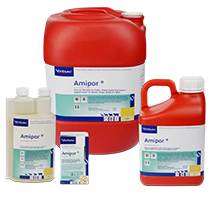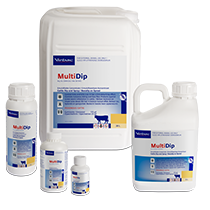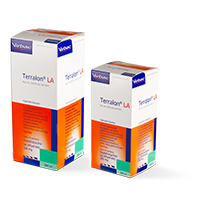
Tick-borne diseases : African Redwater
Redwater (babesioses) is a well-known tick-borne disease. It has a great economic impact and causes stock losses.
There are two types of Redwater that can be distinguished, namely African and Asiatic/European redwater. It is only transmitted by ticks.
African redwater is the most widespread and occurs in areas where both blue ticks (R.decoloratus & R.microplus) occur. It is caused by the parasite Babesia bigemina and is transmitted by the nymph and adult stages of the two Blue tick species Ticks become infected when they feed on cattle that have redwater or are carriers of the parasites (babesioses). They transmit the infection through their eggs to the next generation.
Symptoms:
Redwater symptoms will appear 7-14 days after the animals have been infected with the parasite (B.bigemina);
-
High Fever (40 – 41,5˚C)
-
Light to dark red or brown urine
-
Anemia
-
Jaundice (in advanced cases)
-
Poor appetite, listlessness, weakness, unwillingness to move and possibly a dry nose, dull coat, diarrhoea and abortion.
Diagnosis:
Clinical signs (as described above), can be indicative of disease but confirmation of Africa Redwater should be made by a veterinarian doing a blood smear.
Treatment:
Redwater is strongly affected by the season and outbreaks usually occur in warmer summer and autumn months.
-
When animals have Redwater, treat the animals with Dizene cattle using 7ml/100kg.
-
If unsure if the animal could be infected with Anaplasmosis/ Gallsickness (clinical signs very similar), Terralon LA can be added to the treatment regime.
-
Always remember to use supportive treatments like Vitamin B Co and Rumix powder for any animal that spiked a fever.
-
Control ticks by dipping. Make use of combination products like AMIPOR® or MULTIDIP
With high tick challenges or when animals are moved to rested camps:
-
Dip animals 1 x per week, for 3 weeks/ Dip according to the 5, 5, 4 day dip strategy
-
Always use contact dips (quicker control): AMIPOR® / MULTIDIP
Contact your local Virbac Technical Sales Advisor for more information regarding Redwater and Tick control.


.png)

